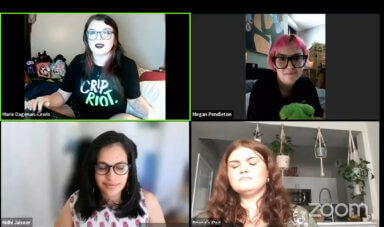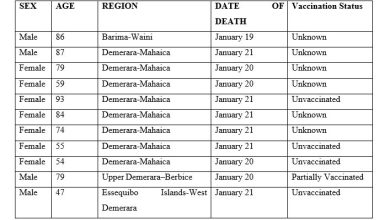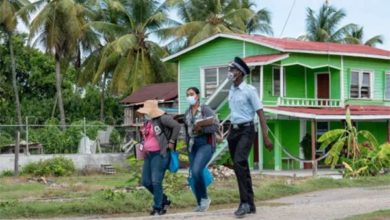The impact of medical gaslighting when someone is disabled

The fourth session of the 3rd annual Power in Pride Celebration Conversation Series, hosted by Marie Dagenais-Lewis, an artist who is disabled and living with MHE, hEDS, ME/CFS, POTS, PTSD and HM was held virtually on July 11.
July is an important month in the history of disability rights, since President George H.W. Bush signed the Americans with Disabilities Act (ADA) into law in 1990 which prohibits discrimination against people with disabilities.
Speakers in the conversation were disability advocates Nidhi Jaisoor, Briana Logsdon, and Megan Pendleton. They shared some of their experiences with medical gaslighting.
According to Dagenais-Lewis, when it comes to disability, “medical gaslighting is when somebody might not believe you, they might try to invalidate what you are medically experiencing.”
Pendleton pointed out how the media often contributes to medical gaslighting, by having incorrect facts in articles, referencing this article in the US edition of The Guardian.
Dagenais- Lewis added to this, saying, “Instead of, like you said, talking to patients, getting some lived experiences of people, and doing research, there’s constantly misleading headlines. There’s constantly false information.”
Jaisoor shared how she had only received her disability diagnosis nine years ago after going through years of chronic pain. It wasn’t until she switched from a physical medicine and rehab physician to a rheumatologist that she got the appropriate treatment.
“He validated my pain. He didn’t dismiss anything, and actually, him giving me that diagnosis of, yes, you have Ehlers-Danlos Syndrome (EDS), I think that has actually helped me with countering any kind of medical gaslighting going forward,” Jaisoor added.
Logsdon echoed Jaisoor’s point about being undiagnosed for years, and struggling to figure out how to manage the symptoms for her EDS diagnosis, while in college studying to be a physician.
“I would not have finished college if it hadn’t been for my one instructor and disability service. And I’m beyond thankful for that,” Logsdon stated. She also shared that other instructors made her feel she wasn’t capable of finishing her degree.
However, Logsdon does the opposite with her patients. “My patients know, I will tell them straight up, I will treat you exactly how I want to be treated as a patient, and that is huge for me,” she continued.
For all medical professionals, according to Logsdon, the most important thing to do is, “Believe your patients. Believe what they tell you. Believe that they have pain.”




